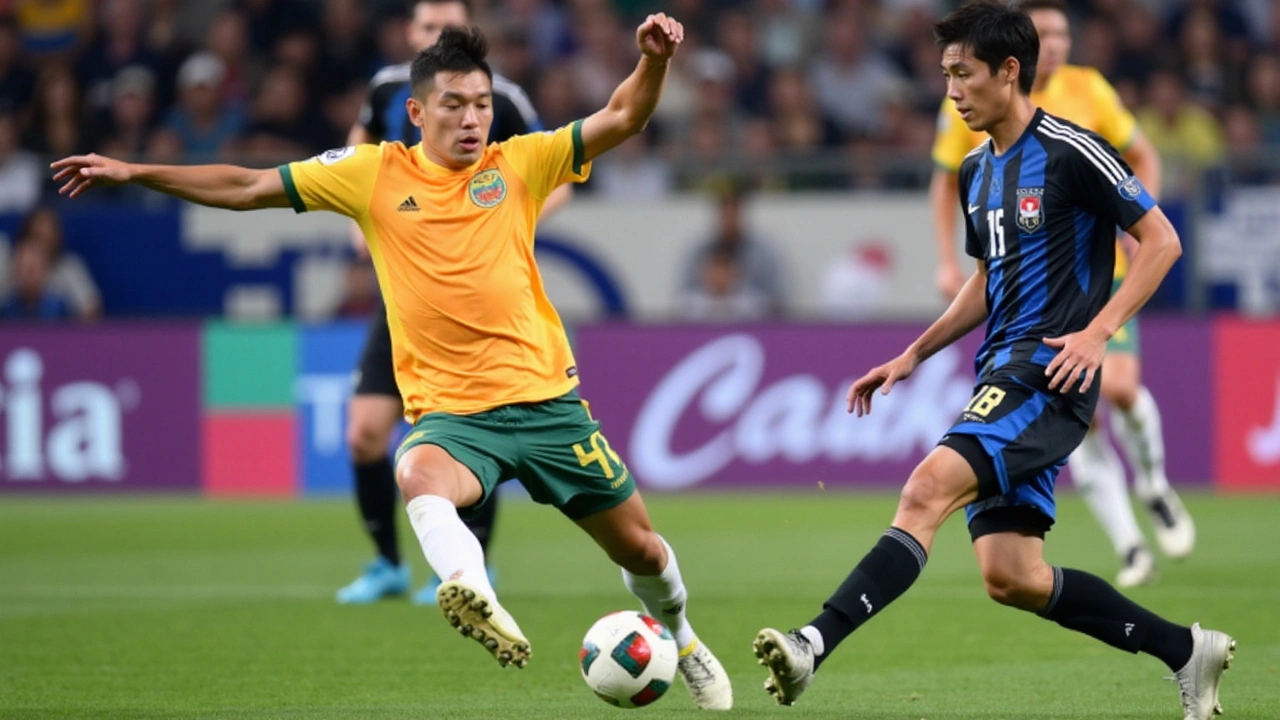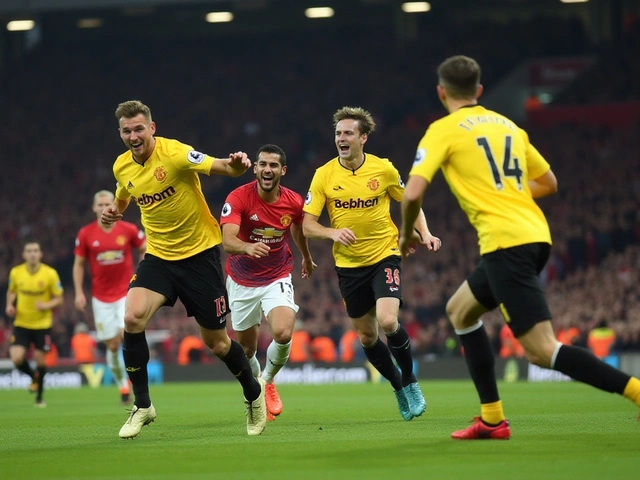
A Crucial Encounter in Saitama
The anticipation was palpable as the Socceroos faced off against Japan in a World Cup qualifying match in Saitama. For the Australian team, this wasn't just another game—it was a moment to test their mettle under the guidance of new coach Tony Popovic. The 1-1 draw they managed to secure against the formidable Japanese squad was seen as a triumph, one that bolstered their prospects in an intensely competitive Group C. This result wasn't achieved easily; it was the culmination of strategic plays and relentless energy on the pitch.
Leading up to the match, Japan had not only remained undefeated but had also managed to keep a clean sheet in all their matches of the third qualifying round. The expectations for this match were high, with Japan having previously dispatched strong teams like Saudi Arabia with apparent ease. As the Socceroos stepped onto the field, they carried with them not just the hopes of advancing in the tournament, but also the weight of history, as they had never previously claimed victory in Japan. This draw marked a significant step forward for the team, illustrating their potential and progress under Popovic’s fresh leadership.
Strategic Mastery by Tony Popovic
Since Tony Popovic’s appointment as head coach, the Socceroos have been experiencing a new wave of tactical rigor. In just his second outing as the coach, Popovic’s strategies bore fruit against Japan’s aggressive play style. Popovic's approach was evident as he organized a solid back line and encouraged a balance of offense and defense. In this match, Maty Ryan's reliability as goalkeeper shone brightly, while the back five—comprising Lewis Miller, Jason Geria, Harry Souttar, Kye Rowles, and Jordy Bos—exemplified a unit determined to withstand the barrage from Japan’s attackers.
Popovic’s strategic focus emphasized compactness in defense and swiftness in transition to attack. This was particularly visible when analyzing the manner in which they held back Japan's star-studded lineup, which included the likes of Ritsu Doan, Karou Mitoma, and Daichi Kamada. This trio had been influential through the Japanese campaign, but their usual efficacy was dampened by Australia’s resolute defending. By subduing these key players, the Socceroos effectively limited Japan's scoring opportunities, paving the way for them to grab a vital away point.
A Battle of Observations and Adaptations
The Socceroos’ experience in this match was not merely a test of skill but a test of adaptability and psychological endurance. The Australian team had previously claimed a 3-1 victory over China, which served as a morale booster coming into this confrontation. With momentum on their side, gleaning a point from Japan on foreign soil was an achievement that bolstered the team’s confidence. This match bore witness to a flurry of tactical adjustments as both teams continuously shifted their strategies looking for an edge over the other.
As the match unfolded, the Socceroos had to battle both the physicality of the game and the mental challenge of playing in an atmosphere filled with expectations. Japan's tactical discipline was evident, and their ability to counterattack with intensity tested the endurance of the Socceroos’ defensive lineup. Yet, the Australians showcased resilience and a tactical maturity not always associated with a team experiencing a coaching transition. Popovic’s ability to motivate and guide his players underlying the performance speaks volumes of his growing influence.
The Broader Implications of the Outcome
The implications of this result extend beyond the immediate context of the World Cup qualifiers. The draw against Japan could potentially signal a turning point for the Socceroos’ aspirations. In the grand scheme of qualification, every point counts. While the immediate joy of notching up a point against such a strong opposition was evident, the long-term benefits are equally crucial. This performance provides the team with a psychological and strategic boost, reinforcing their capability to compete against top-tier sides.
Furthermore, this draw sends a loud and clear message to Australia’s Group C competitors: the Socceroos are a team to be reckoned with under Tony Popovic. Success on the international stage requires perseverance and adaptability, traits that the Socceroos displayed in abundance during this match. With upcoming matches, the resolve shown in Saitama could very well serve as the necessary catalyst driving Australia towards securing their spot in the next World Cup.
Looking Ahead
As the Socceroos look ahead on their World Cup qualifying journey, they have reasons to remain optimistic. The undercurrents of this match suggest a team that’s evolving dynamically and finding its rhythm at a crucial juncture. Popovic’s second match as head coach demonstrates a positive trajectory, and his tenure promises further refinement of the team’s approach. This blending of tactical solidity and attacking initiative could prove invaluable in the matches to come.
With fan support growing and momentum building, Australia’s upcoming fixtures could be a testament to the kind of progress they've made recently. As the players continue to work under Popovic’s guidance, there’s a tangible sense of belief permeating through the squad—a belief that will be paramount in overcoming future challenges. As it stands, Australia's footballing quest is vibrant with possibility, and the draw in Saitama is just one of many stepping stones on their path to potential World Cup glory.





